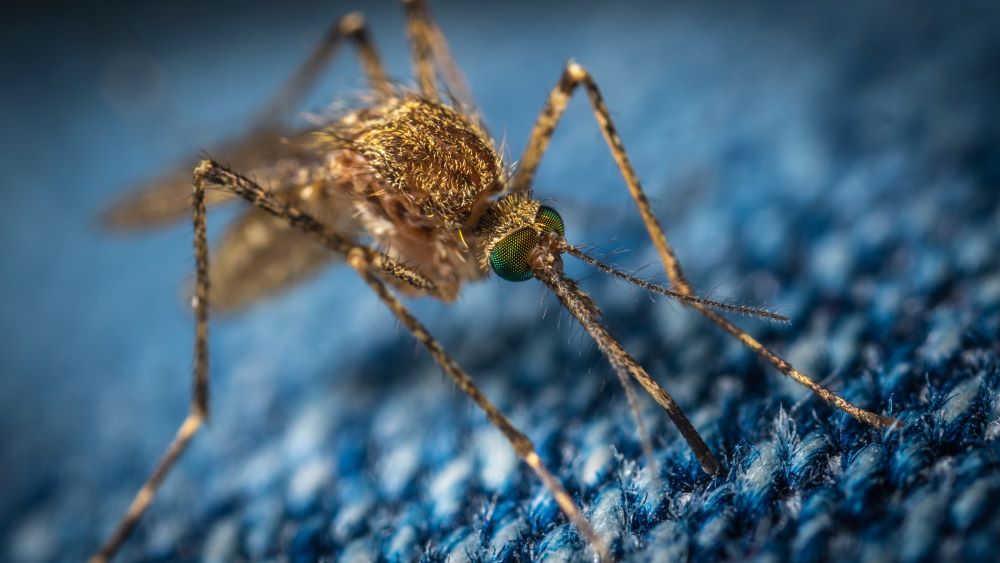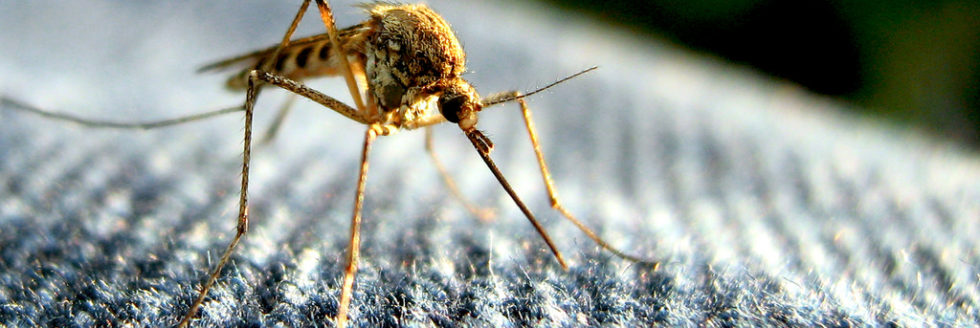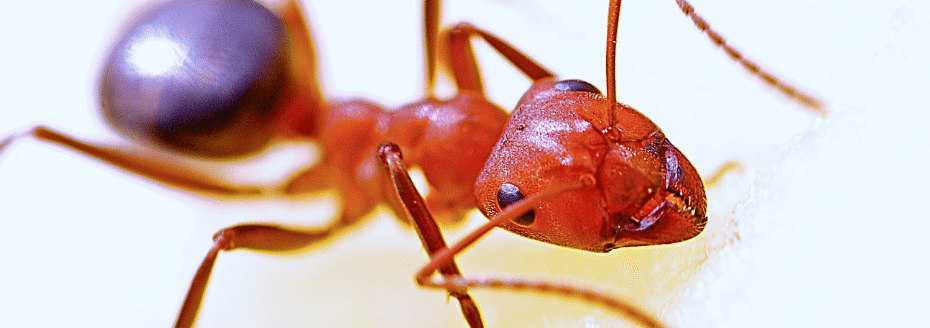Did You Know Mosquitoes Can Be Dangerous?
 We all love the spring and summer. Long days of sunshine and hours of enjoyment in our backyards. However, one part of summer can be a real mood killer: the invasion of mosquitoes. Mosquitoes in Charlotte are more than a simple nuisance—they can carry and facilitate the spread of dangerous and potentially deadly viruses. The Centers for Disease Control and Prevention urges that everyone take preventative measures to avoid mosquito bites.
We all love the spring and summer. Long days of sunshine and hours of enjoyment in our backyards. However, one part of summer can be a real mood killer: the invasion of mosquitoes. Mosquitoes in Charlotte are more than a simple nuisance—they can carry and facilitate the spread of dangerous and potentially deadly viruses. The Centers for Disease Control and Prevention urges that everyone take preventative measures to avoid mosquito bites.
Mosquito-Borne Viruses in the United States
Millions of people are threatened by the presence of mosquitoes. For some, a mosquito bite may result in a pesky, itchy mark. However, for others the consequences can be much worse. Mosquito-borne diseases such as West Nile virus and encephalitis can cause painful symptoms and even lead to death if left untreated. In fact, thousands of Americans are infected with the West Nile virus annually. The West Nile fever occurs in about 20 percent of those infected with the virus. Symptoms mimic the flu and the virus may go undetected. Common signs include fever, headache, body aches, fatigue, vomiting and diarrhea. Since 2001, approximately 1,200 people in the United States have died from the West Nile virus. Severe neurological complications from the West Nile virus occur when the virus causes inflammation in the brain and spinal cord.
St. Louis Encephalitis and Eastern Equine Encephalitis are very serious and potentially deadly diseases caused by mosquito bites. Both diseases are most often caused when mosquitoes feed on an infected bird and then transmit the virus to humans via bites. Eastern Equine Encephalitis is one of the deadliest mosquito-borne diseases with a fatality rate of 30 percent. Of those who do survive, over half have some form of severe mental disability or paralysis.
Threats Outside of the United States
In foreign countries and United States territories, such as the Virgin Islands and Puerto Rico, mosquitoes pose even a higher threat to human health. Four of the most serious and well-known viruses outside of the continental United States include:
- Zika
- Chikungunya
- Dengue
- Malaria
Zika
In February 2016, the World Health Organization declared the Zika virus a public health emergency. The Asian tiger mosquito has been linked to the spread of the Zika virus. Zika virus outbreaks typically have higher incidence rates in Central America, Asia and Africa. However, there have been cases of Zika in the United States. The Zika virus poses the biggest threat to pregnant women and women planning to get pregnant. Zika is linked to microcephaly, a very serious and often deadly birth defect that affects the brain. Since symptoms of Zika are not always apparent in women, blood tests are usually recommended to confirm infection.
See related: Stay Protected from the Zika Virus in Charlotte
Chikungunya
According to the CDC, there have been over 2 million reported cases of the chikungunya virus worldwide. The disease is transmitted via mosquitoes and cases of the disease are most commonly reported in Asia, Africa and India. Symptoms include severe joint pain, fever, nausea, fatigue and skin eruptions. Complications are rare but can be deadly and include the potential for long-term joint pain, cardiovascular disease and neurological disorders.
Dengue
Dengue is rare in the United States, but over a third of the world’s population resides in areas where the risk of infection is possible. Dengue does not spread from person to person as the infection is transmitted exclusively through mosquitoes. Dengue can cause symptoms such as high fever, muscle pain, rashes, joint aches, nausea and vomiting. Dengue becomes deadly when it turns into dengue hemorrhagic fever, a very serious condition that causes bleeding in the gums, under the skin and nose. Dengue shock syndrome leads to massive bleeding and can send a person into shock. Dengue is the leading cause of the death in the tropics.
Malaria
Malaria is transmitted primarily through bites from the female Anopheles mosquito. According to the World Health Organization, there were 216 million cases of malaria in 2016 alone. Young children, pregnant women and those with compromised immune systems are at a high risk of contracting malaria. Initial symptoms include fever, headache and chills, but malaria can become deadly if not treated within 24 hours of infection.
Mosquitoes Can Cause Heartworm in Pets
Mosquitoes can be dangerous to pets as well. Mosquitoes spread heartworm, a very serious parasitic condition that can cause severe injury to a pet’s heart, lungs and arteries.
The Zika Virus in Charlotte
While primarily a concern outside of the United States, there is a possibility of contracting Zika in the United States. The word “Zika” is relatively new to the vocabulary of most Americans, springing to the forefront several years ago with warnings for athletes and visitors of the 2016 Summer Olympics in Brazil. However, Rio de Janeiro and its Zika concerns have faded from many people’s memories and, since Rio de Janeiro is far from Charlotte, tit’s easy to think that North Carolinians are too far-removed for concern. But is this actually the case? And are there ways for the average family to ensure protection from the virus and its ensuing conditions, such as microcephaly and Guillain-Barré syndrome?
The Facts
Around the time of the Olympics, the Center for Disease Control and Prevention (CDC) has confirmed 35 cases of the Zika virus in North Carolina as of August 17, 2016. All of these were travel-associated rather than locally acquired, which is an important distinction. This means that the mosquitos who carry it were not “breeding and feeding” in our state at that time. In fact, only 14 cases originated within the United States , concentrated in one neighborhood in Miami, Florida. Our neighboring states of South Carolina and Virginia have reported 31 and 62 cases, respectively, and Tennessee has weighed in with just 33 cases.
Since 2016, there have been several new cases. According to the CDC’s records:
- In 2017, there were 452 Zika cases reported in the U.S. Two were from local transmission in Florida, five were from local transmission in Texas. All other cases were travel-related.
- In 2018, there were 74 Zika cases reported in the U.S. Seventy-three were travel-related, one was transmitted in a lab.
- In 2019, there were 22 Zika cases reported in the U.S. All were from travelers returning from affected areas except one, which was transmitted in a lab.
These numbers to do not include Zika cases reported in U.S. territories, but they do give us a good indication of how likely it is that you would contract Zika without traveling out of the United States.
What are the Chances?
The dominant carrier of the Zika virus is a “yellow fever” mosquito known as Aedes aegypti. None of these mosquitos have been found in North Carolina, even after researchers collected and tested 17,000 mosquito eggs from 16 different sites in throughout the 2016 summer months. They did find a notable number of eggs from the Aedes albopictus, or Asian tiger mosquito, which can carry Zika – but it’s rare.
Based on the rarity of catching Zika in Charlotte in 2016 and the declining numbers since then, the chance of a runaway epidemic of Zika and its related diseases in Charlotte is unlikely – but the mosquito season in North Carolina does run through September, so it’s good to know the scoop and exercise some caution. Here are some things you can do to protect yourself and your family from contracting the Zika virus.
Ban the Breeding
Mosquitos love standing water, as that’s where they lay their eggs. Up to new 300 mosquitos can emerge from just one tablespoon of water, so it’s crucial to eliminate standing water from bird baths, buckets, tires, pots, inflatable pools and gutters. Fill outdoor puddles in with dirt. Put screens on windows and doors to keep mosquitos from indoor water glasses or shower puddles.
Spray Away
The CDC recommends using an EPA-registered insect repellent for protection. Follow all label directions, especially when applying on children. Avoid using it on infants under two months old. Consider alternative natural insect repellents, such as ones containing citronella and geraniol or oils that include lemongrass, cedar, rosemary, peppermint and cinnamon. Consumer Reports notes that natural insect repellents tend to wear off very quickly – so keep this in mind.
Dress for Success
Covering up is the easiest and most practical way to avoid getting the Zika virus. The Aedes aegypti mosquito is more active during the day, so wear lightweight long sleeves and pants and full-coverage shoes. Use mosquito netting over strollers and baby carriers.
Charlotte Mosquito Control
Although repellents can prevent mosquito bites to a degree, you really need to take steps to reduce the number of mosquitoes on your property. Mosquitoes breed in water and their populations can expand if there is standing water on your property. Carolina Pest Management works with homeowners throughout the Carolinas to drastically reduce the number of mosquitoes swarming their properties. We offer green mosquito control options, which are environmentally friendly and safe for children and pets. Contact Us to discuss ways we can help.


